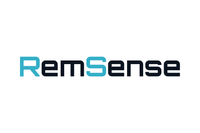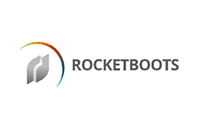AI Market Update: H1 2023 in Review
Interest in AI surged in the first half of 2023. Learn about the highlights seen over the last six months and find out what could be next for the sector.

Artificial intelligence (AI) has become a hot topic in 2023 as industries across the board and some of the biggest names in tech try to integrate this game-changing tool into their operations.
At a smaller scale, the rise of platforms like OpenAI's ChatGPT are allowing individuals to use AI in everyday life.
Here the Investing News Network recaps key events in the AI market in the first half of 2023.
OpenAI's ChatGPT generates excitement
Spurred on by the rise of ChatGPT, AI tools have been on the frontlines of discourse in 2023.
ChatGPT is a prompt-based AI model that can answer questions posed by users. While the tool officially launched late last year, this year many people have harnessed it for help with everything from writing to coding and more.
Corporations have responded quickly to demand for more ways to access AI, with Snapchat and other companies working on ChatGPT tools; the platform's popularity has also spawned a wide array competitors.
“I think with all the talk about ChatGPT over the last six months or so, that has really brought AI, at least the conversation about it to the forefront,” Allan Small, senior investment advisor with iA Private Wealth, told Global News.
Major tech players integrate AI improvements
Investors watching the AI trend are curious about how to get exposure, and from a capital markets standpoint, it's hard to argue that any company has benefited more from the AI boom than NVIDIA (NASDAQ:NVDA).
NVIDIA has a direct presence in both the way AI tools are used and in the entire computing landscape. The company has an AI division that offers business solutions to organizations in need of AI platform software or AI models and services, and also has investments and partnerships geared at further advancing its AI interests.
Shares of NVIDIA are up over 195.51 percent year-to-date as of June 30, and the company has continued to expand its partnerships and investment deals across the AI landscape.
Of course, NVIDIA isn't the only large tech player looking to capitalize on the tremendous rise in AI interest.
One example is Microsoft (NASDAQ:MSFT), which is an investor in OpenAI. It has integrated ChatGPT into its Bing search engine, upgrading it to the GPT-4 update in May after beginning the partnership earlier this year.
Microsoft will now look to add AI solutions to Azure, its cloud computing solution for businesses.
Billion-dollar AI deal shows confidence in sector
Highlighting AI's growing prominence, an AI startup locked in a US$1.3 billion investment from several tech investors at the end of June. Among its backers are Microsoft and NVIDIA, which will support the company as it develops a new generative AI assistant.
The company, Inflection AI, is led by Mustafa Suleyman, who previously co-founded DeepMind, the now Google-owned AI lab.
In a television appearance, Suleyman said it’s “an honor and a privilege” to be backed by these investors.
“The potential upside is enormous,” the executive added.
Suleyman envisions a world where personal intelligence tools will suit users directly and said there’s a lot to do when it comes to figuring out where AI may be headed. He expects Inflection AI to be up and running later this year.
Positive AI fund returns highlight opportunity
Investors who are evaluating novel markets often rely on exchange-traded funds (ETFs) as a way to get broad initial exposure before taking more direct positions. Those looking at AI are in luck — various funds offer exposure to the market.
The Robotics & Artificial Intelligence ETF (NASDAQ:BOTZ) from Global X ETFs has enjoyed a strong return so far this year, rising 39.18 percent year-to-date as of June 30. The fund has over 40 holdings whose focus is on the adoption and use of AI.
Another AI fund is the ROBO Global Robotics & Automation ETF (LSE:ROBO), which had gone up in value by 25.61 percent year-to-date as of June 30. Similarly, the iShares Robotics and Artificial Intelligence Multisector ETF (ARCA:IRBO) had risen 28.11 percent as of the same date. This fund presents investors with a diversified approach since it holds over 100 securities and offers more exposure to Asian markets, including China and Japan.
In its prospectus, the fund managers for IRBO highlight the following AI sector risk: “Robotics and artificial intelligence companies, especially smaller companies, tend to be more volatile than companies that do not rely heavily on technology.”
Additionally, the fund managers note that companies involved in the AI marketplace face intense competition and potentially rapid product obsolescence. “Many of these companies are also reliant on the end user demand of products and services in various industries that may in part utilize robotics and artificial intelligence,” the document states.
Investor takeaway
The speed at which AI business solutions are gaining traction shows the public's willingness to engage with novel technology. The money backing this industry also indicates how much interest is building for AI.
“Enterprises are increasingly turning to cloud-first AI strategies that enable fast development and scalable deployment,” Jensen Huang, CEO and founder of NVIDIA, said.
Don’t forget to follow us @INN_Technology for real-time news updates!
Securities Disclosure: I, Bryan Mc Govern hold no direct investment interest in any company mentioned in this article.
Editorial Disclosure: The Investing News Network does not guarantee the accuracy or thoroughness of the information reported in the interviews it conducts. The opinions expressed in these interviews do not reflect the opinions of the Investing News Network and do not constitute investment advice. All readers are encouraged to perform their own due diligence.
- How Will AI Affect Investing? ›
- 10 Generative AI Stocks to Watch as ChatGPT Soars (Updated 2023) ›
- What is OpenAI's ChatGPT and Can You Invest? ›
- 5 Artificial Intelligence ETFs (Updated 2022) ›
- How to Invest in Artificial Intelligence (Updated 2022) ›


